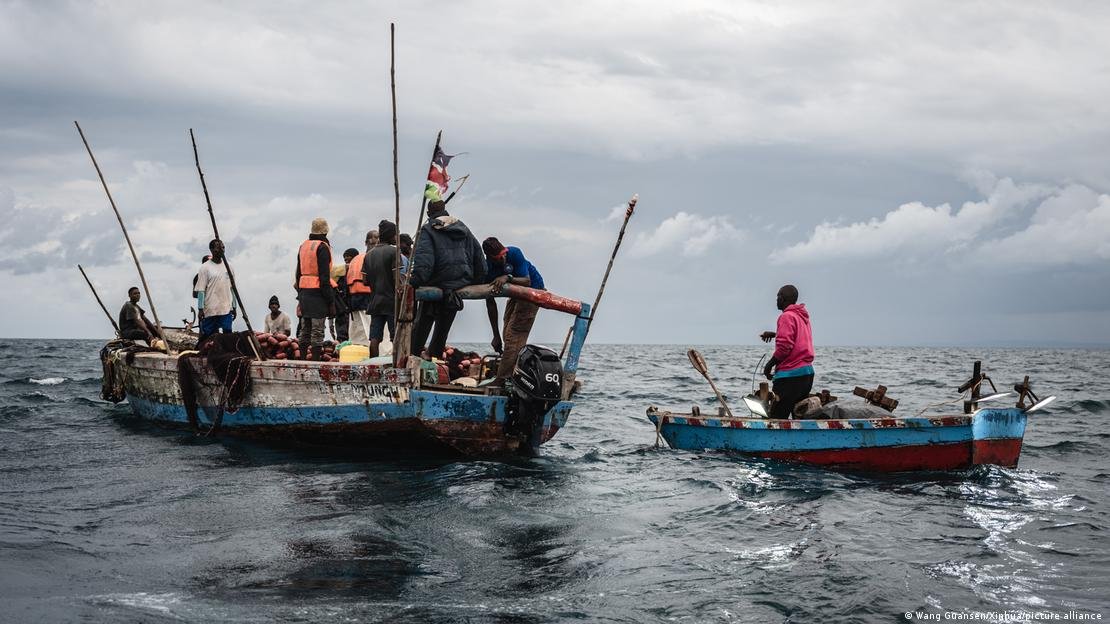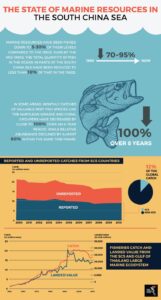News
Illegal, Unreported, and Unregulated Fishing In The Indian Ocean Is Denying Africa Billions
The cruelty and illegal actions initiated by Chinese DWF must be curbed by enshrining transparency practices across fisheries regulations for proper understanding among the stakeholders in the fisheries industry.

Blue economy remains a significant economic pillar for coastal nations of Kenya and Tanzania.
However, despite all the glowing expectations from the sector, it continues to be under threat of Illegal, Unreported, and Unregulated (IUU) fishing for both countries. These unfortunate actions are undermining the sustainability of marine ecosystems, frustrating local fishing communities, food security, livelihoods and blockage to actions aimed at effectively managing fisheries resources for all.
Kenya continues to lose unprecedented amounts of seafood to the illegality with some putting the estimates at 40 tonnes annualy.
A 2023 study by Global Initiative Against Transnational Organized Crime (GIATOC) ranks Kenya and Tanzania among countries exposed to IUU with a global score of 2.22 and 2.31 (number 86 and 66 out of 152 countries) respectively.
In Kenya, primary responsibility for IUU is under check of Ministry of Agriculture, livestock and fisheries while Tanzania, Ministry of Livestock and fisheries oversees actions of combating the chronic IUU fishing. The two countries also extend collaboration with regional bodies like Indian Ocean Commission, Inter-governmental Authority on Development (IGAD).
EJF
Notably, Organization like Environmental Justice Foundation (EJF) is outstanding in the region and internationally playing critical role in supporting efforts for combing out IUU fishing. The mandate is through informing policies, driving systematic as well as durable reforms to protect marine environment and defending human rights.
Additionally, it has frameworks for investigation and reporting on IUU. Illegal fishing mostly goes hand-in-hand with notorious human rights/labour violations among the many fishing vessels. Among issues vulnerable crews undergoes include physical and psychological abuse, debt bondages, poor living conditions and long working hours.
China menace
Chinese Onshore-investment has as well penetrated the coastal nations of Kenya and Tanzania along the Indian Ocean, while the economic transformation ties have some countable infrastructural benefits for the region, behaviors of Chinese Distance-Water Fleet (DWF) vessel have high propensity for illegal fishing and many human rights abuses investigated and reported by EFJ.
Among these; physical violence 55%, Deliberate capture/ injury of marine mega fauna 59%, Shark fining 80%, Excessive Overtime 96%, Abusive working and living conditions 100%.
To curb all these menace, EFJ through its investigative and reporting framework is in collaboration with other organizations, coastal nations, flag and market states through its structured policy interventions and recommendations.
As for the government of the People’s Republic of China, it should align with recommended practices and cooperate with international partners, sanctions, sustainability and transparency.
For the blue economies and ecosystem of coastal regions of Kenya and Tanzania to thrive, every initiative should be legal, equitable and sustainable towards long-term economic viability.
The cruelty and illegal actions initiated by Chinese DWF must be curbed by enshrining transparency practices across fisheries regulations for proper understanding among the stakeholders in the fisheries industry.
Kenya Insights allows guest blogging, if you want to be published on Kenya’s most authoritative and accurate blog, have an expose, news TIPS, story angles, human interest stories, drop us an email on [email protected] or via Telegram
-

 Business2 weeks ago
Business2 weeks agoEastleigh Businessman Accused of Sh296 Million Theft, Money Laundering Scandal
-

 Investigations1 week ago
Investigations1 week agoInside Nairobi Firm Used To Launder Millions From Minnesota Sh39 Billion Fraud
-

 Business1 week ago
Business1 week agoMost Safaricom Customers Feel They’re Being Conned By Their Billing System
-

 News1 week ago
News1 week agoUnfit for Office: The Damning Case Against NCA Boss Maurice Akech as Bodies Pile Up
-

 Business2 weeks ago
Business2 weeks agoEXPLOSIVE: BBS Mall Owner Wants Gachagua Reprimanded After Linking Him To Money Laundering, Minnesota Fraud
-

 News1 week ago
News1 week agoTax Payers Could Lose Millions in KWS Sh710 Insurance Tender Scam As Rot in The Agency Gets Exposed Further
-

 News1 week ago
News1 week agoPastor James Irungu Collapses After 79 Hours Into 80-Hour Tree-Hugging Challenge, Rushed to Hospital
-

 News1 week ago
News1 week agoDeath Traps: Nairobi Sitting on a Time Bomb as 85 Per Cent of Buildings Risk Collapse


















